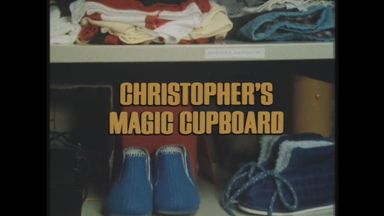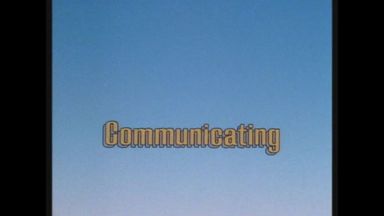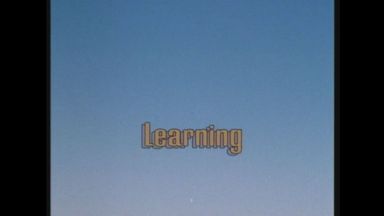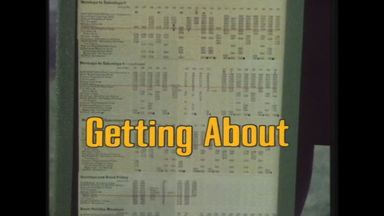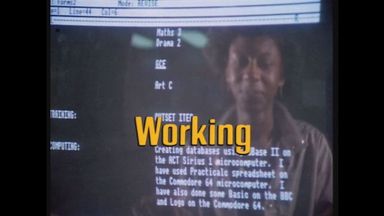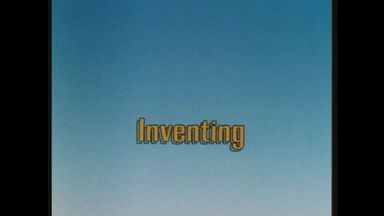With a Little Help from the Chip
1. Christopher's Magic Cupboard
Clips from this programme
Project Christopher's Magic Cupboard: Christopher is 4 years old. He's bright, mischievous and full of life but he's severely physically handicapped, living in Great Ormand Street Hospital with micro technology helping his life and learning (Martina Ryan, Speech Therapist) 'odd one out' and 'hunt the ball', MicroMike, sky line
Duration: 06:26Project Christopher: The robot arm and the mobility chair for do things to learn, communicate, provide mobility to work and provide independence
Duration: 02:20Environmental control system (POSSUM) for John Prestwich e.g. Control of the Radio, opening doors & curtains by whistling to a scanning panel, lessening the effects of John's disability on his life
Duration: 02:50Derek Howard using a hand-switch (Steeper) for more independent living at home
Duration: 01:16Shopping & Information by Computer (Commodore Pet) for those without independent mobility: Computer Terminals at the Fountain View Centre, Gateshead, and from own homes via teletext & keypad via the computer and the telephone (Tesco Orders)
Duration: 04:17Alexander Patterson School: Computers helping to deal with and assess physical and mental handicaps (David Mitchell - Teacher) Speech / touch control of a game
Duration: 04:03Computers assisting with Physical handicaps: Blackpool and File College of Further Education: word processing (Cerebral Palsy) with keymaster driving the standard computer and software (Lydon Thomas, Reader in Micro-Electronics)
Duration: 02:00Computers assisting the profoundly deaf (Geoff Haywood at Standard Telephones & Cables), Palantype micro (Possum controls)
Duration: 02:31Computers assisting the blind (VersaBraille for Braille to code) + A Reading machine, scanning text Opticon
Duration: 03:39Computers assisting the blind in their leisure: Standard text to Braille books, assisted by a speech synthesiser
Duration: 01:28Computers assisting the profoundly deaf: Keeping in touch by the telephone (Tantel & RNID's exchange for the deaf operators) Email!?
Duration: 02:40Computers assisting the paralysed: Mobility via the ELFIN system and a keyboard emulator
Duration: 02:01Computers assisting: Advice, assessment and help via Communication Aids Centres (Sandwell Heath Authority). Best switches for least-effort operation (Clive Thursfield, Bio-engineer) - costs and funding from what Authority?
Duration: 06:44Computers assisting children in Welsh school - Funding / provision for Micro Aids, from which Authority (Tudor Rhapps, Head Teacher)
Duration: 04:50Conclusions / summary for 'The Chip and disabled people'
Duration: 00:42With a Little Help from the Chip
1. Christopher's Magic Cupboard
First broadcast: 30th August 1985
Duration 48:50
Six programmes on how micro-technology can help disabled people to live more independent lives. Christopher's Magic Cupboard. Christopher is 4 years old. He's bright, mischievous and full of life but he's severely physically handicapped. Now, micro-technology is beginning to change his life, enabling him to do things the rest of us take for granted - learning, playing, getting about, communicating, and being naughty for the first time in his life. The 'chip' is very versatile: with it, blind people can read books, deaf people can use the telephone and people who couldn't speak or write at all can now make contact with the outside world. But can the miracle chip reach all those who need it? Film editor JOHN BILLINGHAM Assistant producer GEORGE AUCKLAND Producer ANNA JACKSON
Now playing
2. Communicating
First broadcast: 6th September 1985
Duration 24:21
Six programmes on how micro-technology can help disabled people to live more independent lives. 2: Communicating. After 13 years of silence, the chip has given Michael Waelchli a voice. Patrick Murphy is deaf and blind, but he can now read, take notes, use the telephone, send and receive letters and get the latest news from his television. Young Julia Mason has never been able to speak or write - now for the first time she can communicate with the outside world. Film editor PETER ESSEX Producer ANNA JACKSON
3. Learning
First broadcast: 13th September 1985
Duration 24:31
The third of six programmes on how micro-technology can help disabled people. Learning. The chip can help blind children to learn Braille - and convert it to print for their teachers; it can help deaf children to learn language; good computer programs can stimulate and reward those with learning difficulties; and a combination of hardware, good programs and special switches can enable severely physically handicapped children to learn. Film editor PETER ESSEX Producer ANNA JACKSON
4. Getting About
First broadcast: 20th September 1985
Duration 23:57
The fourth of six programmes on how micro-technology can help disabled people. Getting About. A talking bus stop and wheelchairs that climb kerbs, that raise and lower, or that can be operated by two switches - the versatile chip is the key to all these. It can also improve muscle-control, and help you learn to drive. Producer ANNA JACKSON Director CATHERINE ROBINS
5. Working
First broadcast: 27th September 1985
Duration 23:06
The fifth of six programmes on how micro-technology can help disabled people. Working. Kenny Matheson and Pat Magee both work from home, thanks to the chip; Rhoda Carratt is blind and holds down a secretarial job with the help of some enabling micro-technology; and a new information system on computer finds the best aid to help a person at work. Producer ANNA JACKSON Director CATHERINE ROBINS
6. Inventing
First broadcast: 4th October 1985
Duration 24:01
The last of six programmes on how micro-technology can help disabled people to live more independent lives. Inventing. Britain leads the world in inventing aids for disabled people. This programme follows the development of a number of different types of aid, from the Micromike, made in an airing-cupboard in the inventor's home, to the Electronic Book, now marketed by Tandy. It looks at some of the pitfalls, the achievements and sources of help and advice. Film editor JOHN BILLINGHAM Producer ANNA JACKSON Director GEORGE AUCKLAND

















